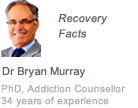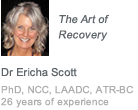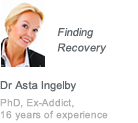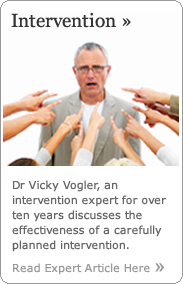Binge Drinking
The end of another week of work or study – Friday night: a time to let your hair down, go out and paint the town red. For you, there is no better way to celebrate the arrival of the weekend than to get together with friends, and get rip-roaring drunk as quickly as possible. It has become a bit of a social competition, maybe even a badge of honor: who can drink the most and get drunk in the shortest time? Just a bit of fun, a bit of a lark perhaps? But maybe the Friday night binge drinking is also a feature of Saturday night now?
In the longer term binge drinking is not quite as much fun as seemed at first. Regular binge drinking is a stepping-stone to full-blown alcoholism, and is responsible for a variety of harmful health and social problems.
If you recognize yourself as a binge drinker and would like to break the habit, there is a range of professional help available to assist you. No one is going criticize or stigmatize you for owning up to binge drinking; it is a widespread problem, and you are not unique.
Binge drinking defined
In general terms the phrase binge drinking is defined as: “the consumption of excessive amounts of alcohol within a limited period of time’. Since alcohol tolerance varies from one person to the next it is more difficult to define what might be excessive amounts specifically. According to the British government’s guidelines for safe daily alcohol limits, binge-drinking would be identified as the consumption of eight or more units of alcohol for men, and six or more units for women within a single drinking session. In this context a half-pint of beer or a small glass of wine equates to approximately 1.5 units of alcohol.
Binge drinking facts and statistics
A report produced by the United Kingdom’s highly respected social research charity, The Joseph Rowntree Organization, found:
- More than half of the UK’s teenagers aged between fifteen and sixteen had participated in binge drinking.
- Over 40% of adults between 18 and 24 binge drink on a regular basis
- There has been a significant increase in the number of female binge-drinkers in the last decade
- The UK has the third highest population of binge-drinkers in Europe, beaten only by Belgium and Bulgaria
- Men who binge drink in their twenties are twice as likely to retain the habit into their forties as those who do not.
The commonest reasons given for binge drinking are that it is a way to escape daily stresses and pressures, that it is part of being seen as ‘one of the lads/girls’, just for fun and to increase confidence when in a social situation.
How binge drinking affects health and wellbeing
The negative effects on health and wellbeing of long-term alcohol dependence are well documented, but binge drinking brings with it an equally undesirable assortment of consequences, some of which are potentially harmful and some of which may prove fatal.
It is the rapid intake of excessive amounts of alcohol – which the body treats as a toxic substance – combined with the ensuing loss of control through drunkenness which makes binge drinking such a lethal proposition. Beside the inherent and very real risk of alcohol poisoning, the detrimental effects of repeated binge drinking are known to include:
- The potentially irreversible destruction of brain cells which may lead to problems with memory loss
- Intestinal complaints such as gastritis and pancreatitis
- Strokes
- Heart problems: 25% of sudden deaths from heart failure in young men are attributable to alcohol intoxication
- Impaired liver function
- Cancers including breast, liver or mouth cancer
Although less serious than the conditions mentioned above, binge drinking can also affect an individuals physical appearance; the skin may ‘age’ due to dehydration, dilating blood vessels in the face may rupture leaving distinctive red thread-veins over the cheeks and nose. Weight gain from the empty calories found in alcohol is not unusual in binge drinkers, particularly women.
It is not just the physical consequences of binge drinking that pose a hazard. Binge drinking is also known to cause sleeplessness, anxiety and depression, and has been linked to self-harm and suicidal tendencies.
Binge drinking, drunkenness and loss of control
The state of drunkenness quickly achieved as a result of binge drinking poses further and more immediate threats to health and wellbeing.
A high level of alcohol intoxication impairs both judgment and balance, increasing the likelihood of injury from falls or other accidents.
As your body attempts to relieve itself of alcohol toxicity by inducing vomiting, the prospect of choking to death on your own vomit becomes a reality.
The loss of inhibition and increased sense of bravado elicited by an excessive intake of alcohol often fuels casual violence, which may again lead to potentially severe injury.
For women, the impairment of judgment and physical control may leave them vulnerable to sexual attack.
These are just some of the unpleasant scenarios that can arise as a result of binge drinking. Alcohol affects different people in different ways. You may not become violent, but you may lose bladder control. Or black out. But however you look at it, the reality of binge drinking is not as much fun as you might think.
Getting help for binge drinking
In a society which promotes alcoholic drinks in ways which are intended to appeal to every age group and social sector, and in which the marketing men equate our mass consumption of ‘Alco pops’ with a fun night out, it is not surprising that binge drinking is as prevalent as it is.
We are all human, and each of us finds enjoyment in different ways. But if you recognize the tendency to binge drink in yourself or in someone that you know and care about, and you feel that perhaps it is no longer the fun it once seemed, there is a wealth of professional and supportive help that you can turn to, and which will assist you in making your binge drinking a thing of the past.
Admitting to yourself that you are a binge drinker and that you do not want to be one any more is a huge step that takes courage, a sense of self-esteem and a desire to be an individual rather than a member of the herd. If you are ready to take the next step and seek help for your binge drinking you are already well on the way to kicking the habit into touch once and for all.












